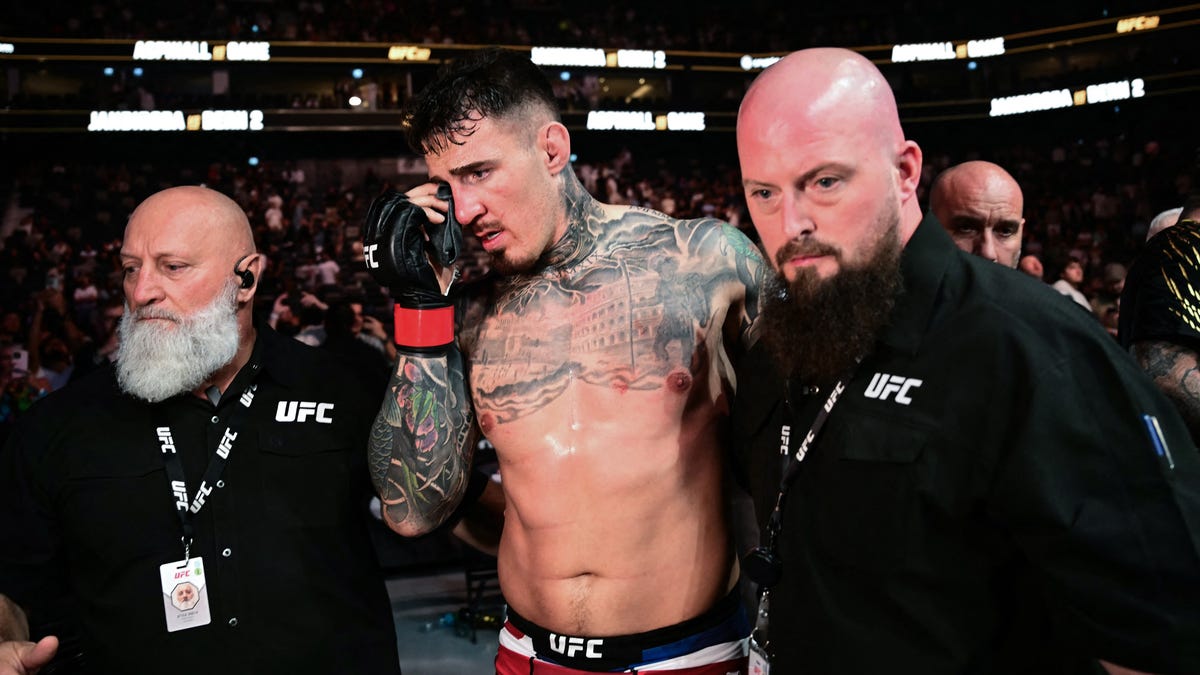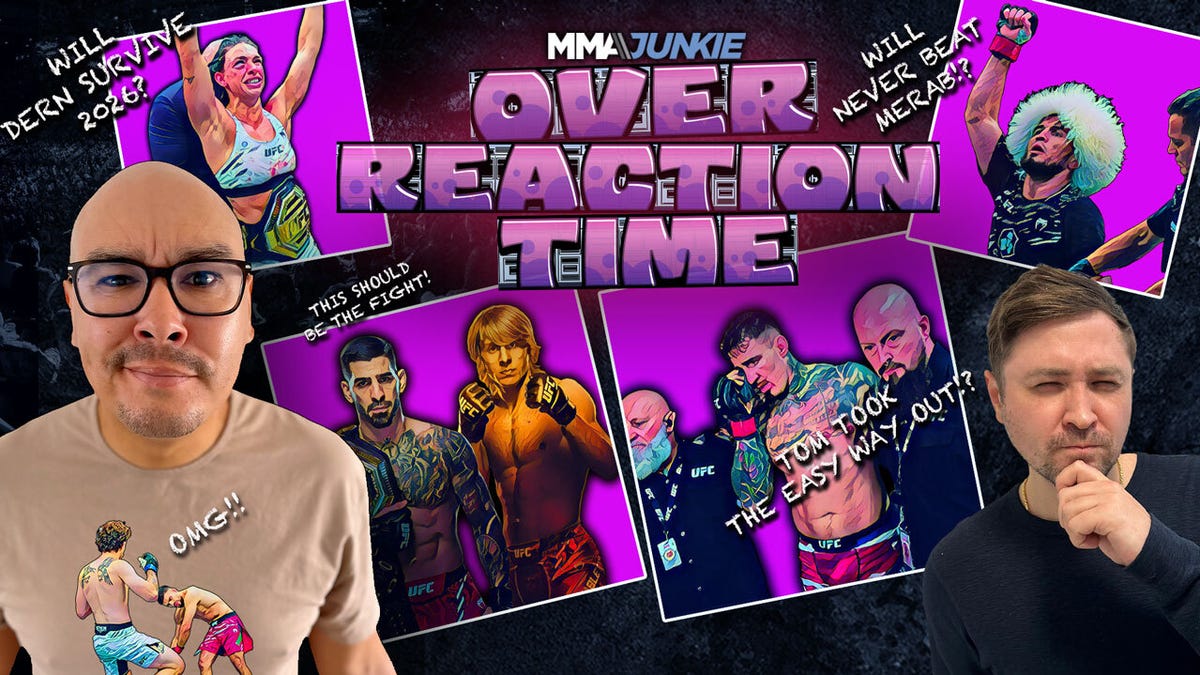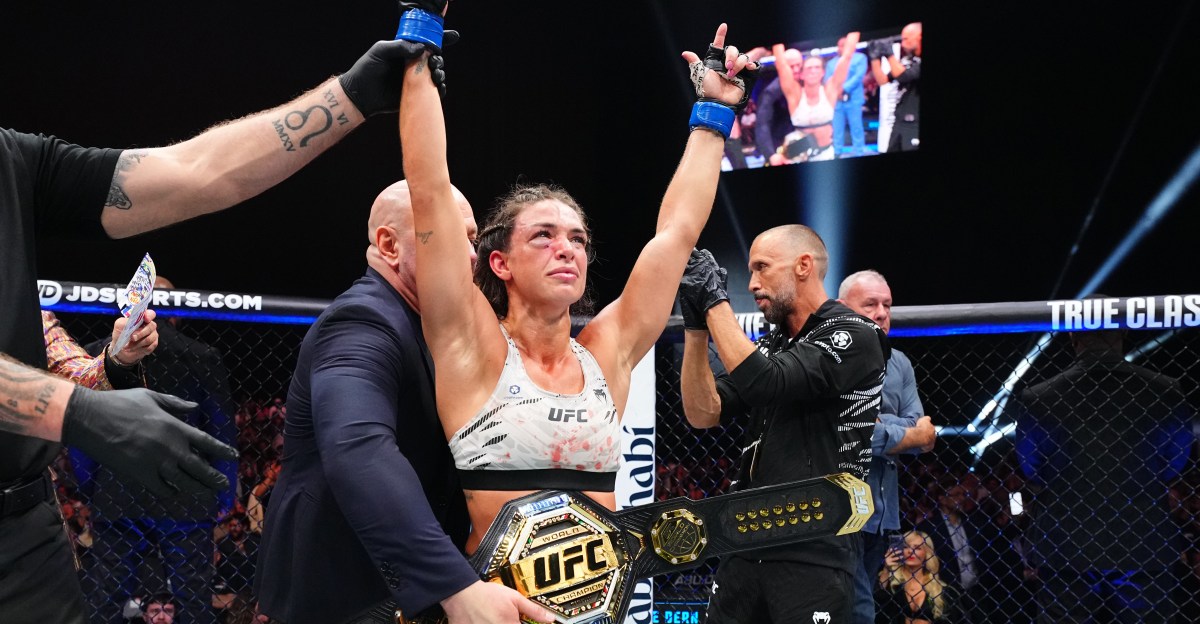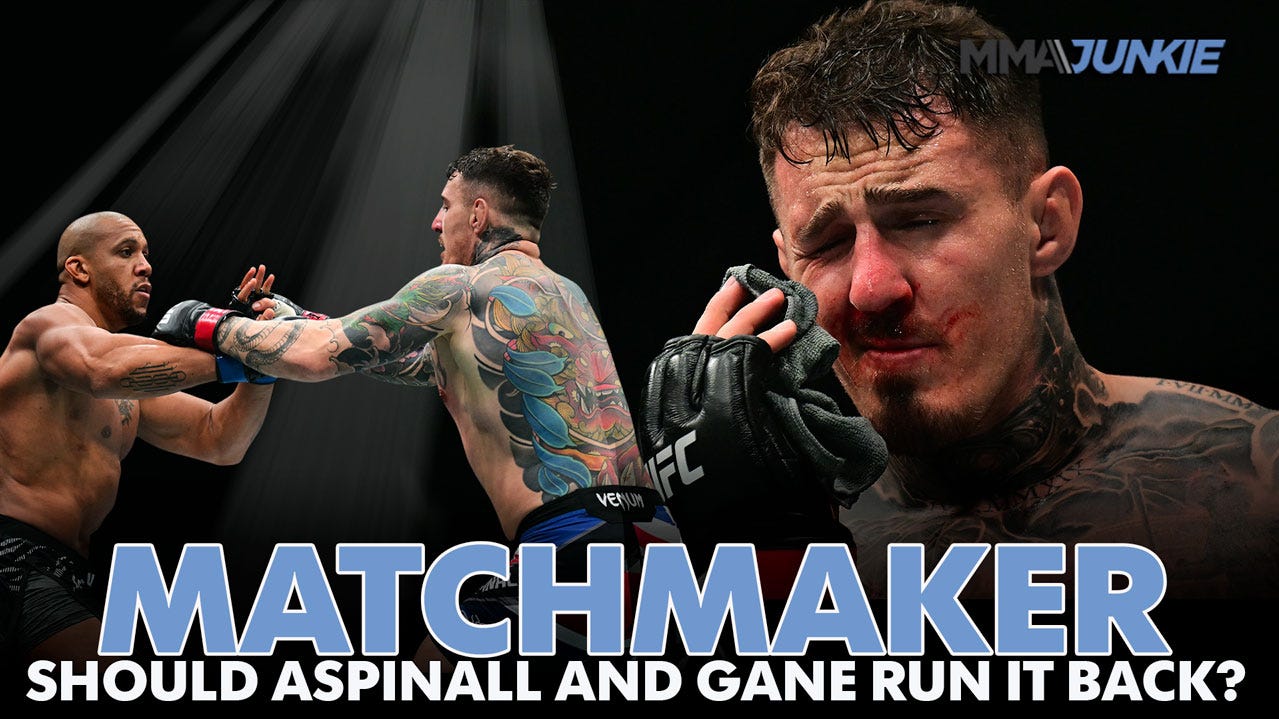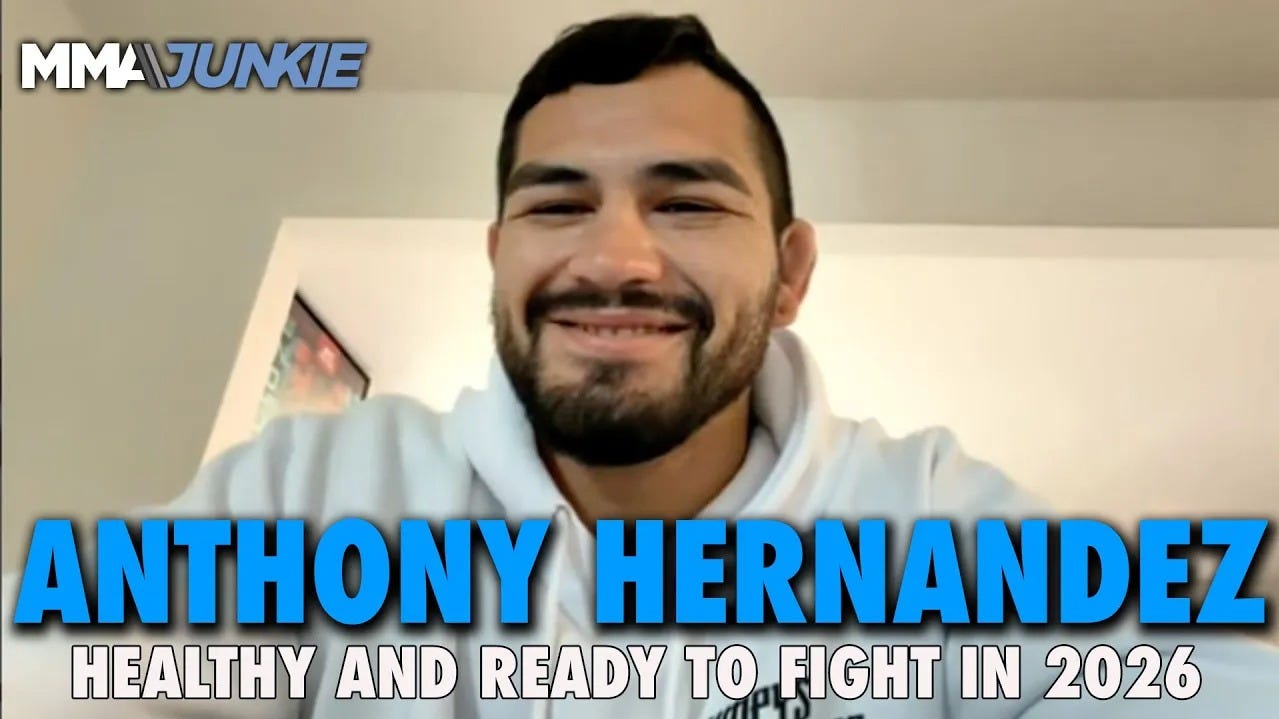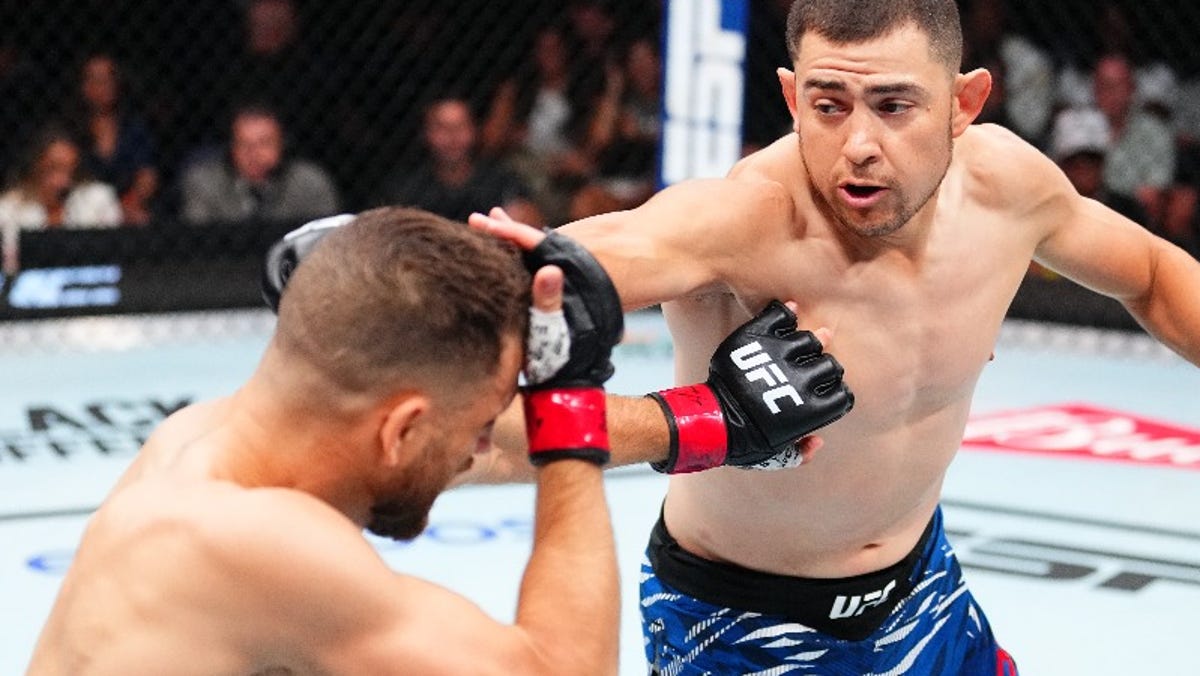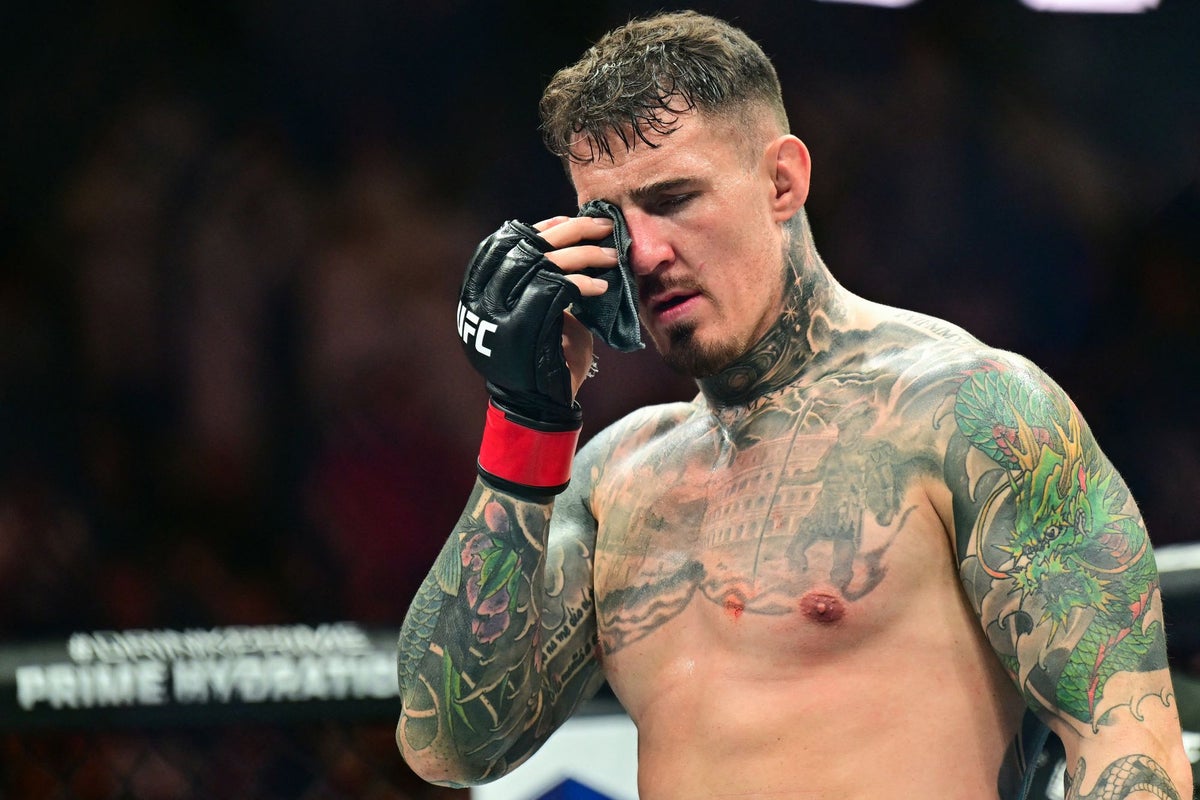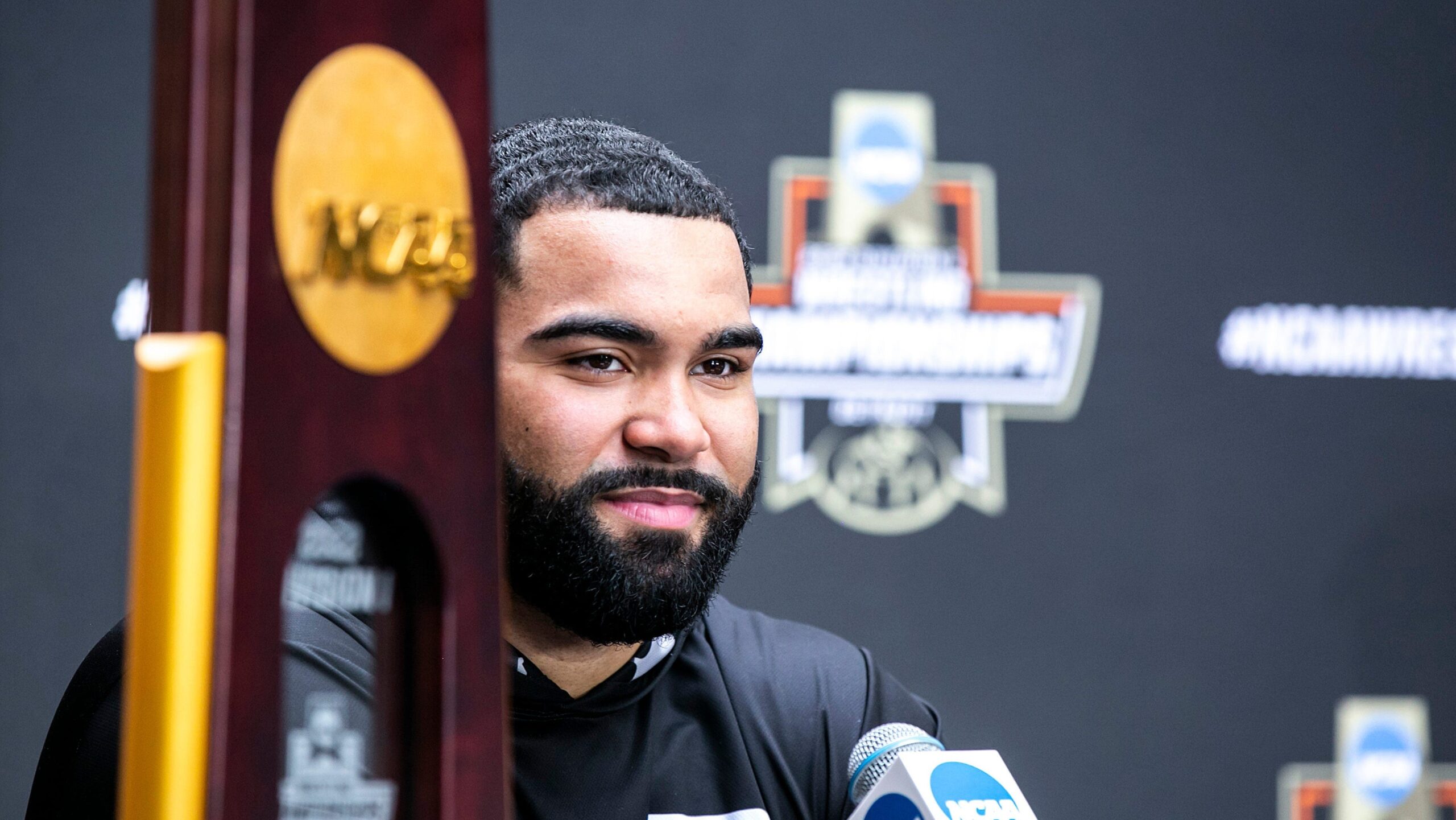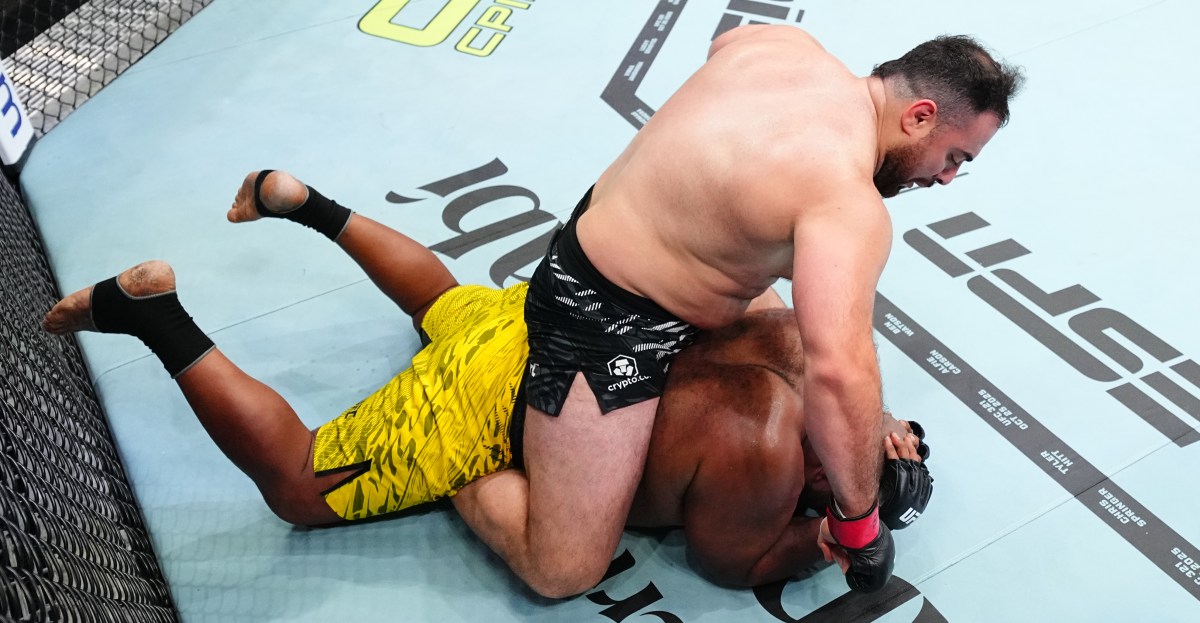Jim Miller has been around the block long enough to call foul on what he knows is a preventable problem.
Since the anticlimactic no-contest finish to Tom Aspinall’s UFC heavyweight title defense against Ciryl Gane at UFC 321, the fight world has been up in arms about how Gane’s eye-pokes should’ve been handled. For Miller, who boasts the most UFC fights in history (46), it’s simple. He’s seen the rules change firsthand over the years, worn the gloves, and been affected by split-second decisions leading to fingertips landing where they shouldn’t. All of which drives his main point: When an eye-poke happens, nobody is held accountable — and that lack of consequence, he says, is the root cause to the problem.
Advertisement
Speaking Monday on “The Ariel Helwani Show,” the UFC’s longest-tenured active fighter shared his argument that eye pokes aren’t an equipment issue so much as a cultural one.
“No one is ever held accountable for their actions,” Miller told Uncrowned. “I’ve put on UFC gloves 46 times to fight in the Octagon. Do [the gloves] affect your ability to fully close your hand? Yes, they do. But they don’t affect your ability to at least partially close [your hand].
“There’s obviously material in the palm of your hand when you’re wearing an MMA glove and a wrap. So you can’t do ‘fine’ stuff. You’re not going to do brain surgery wearing a pair of UFC gloves, but you can close your hand — and when fighters don’t close their hand, that’s when the eye-pokes happen. And no one seems to be held accountable when it actually does.”
Miller, 42, is careful to separate intent from consequence. He didn’t view Gane’s intentions as malicious, but that doesn’t excuse the damage Gane’s foul caused.
Advertisement
In Miller’s view, the sport tolerates these fouls because the penalties are toothless. He says he’s never used an open, outstretched hand as a weapon in the pocket, and when he thinks of other longtime veterans like himself, Clay Guida, or Donald Cerrone, eye-pokes simply don’t appear as frequently.
“If it was a natural part of the sport, and something that was just going to happen, you would think that the fighters with the most time in the Octagon would have just as many eye-pokes as anybody else,” he explained.
“If I show up three weeks prior to a fight and I get cut, then it opens back up and the commission finds out, I’m getting suspended for that. But we attack somebody’s eyeball and we don’t get even a little bit of a suspension or even a fine? It’s crazy. It’s absolutely crazy to me. They’re fouls, but we don’t treat them like fouls. So how do we prevent the behavior if we don’t actually penalize it?”
That inconsistency from MMA’s officials and governing bodies bothers Miller, but there’s a straightforward remedy: Let a fighter feel the effects financially. Monetary fines, point deductions, or immediate suspensions would force change, Miller says. When a fighter risks real money or standings, he argues, they’ll be incentivized to close their hand and protect a rival’s eyesight.
Advertisement
“In the UFC, we don’t kick each other to the head when the opponent is on the ground because we lose, because they have a very good track record of penalizing people that do so,” Miller said. “I believe that if we brought in fines [for eye-pokes] — the warning is in the back. If you’re going to take my money away, I’m going to make sure that my hands are closed when I’m reaching out. I’m going to make sure that I don’t poke somebody in the eye. But they’re not really penalizing people. The thing is, a lot of the time, when somebody gets poked in the eye, their chances of victory are super slim.”
A comparison between the UFC and PRIDE FC is always the easiest to make when it comes to the debate over MMA gloves, in both glove construction — PRIDE’s gloves forced much more of a curve in the hand — but also to underline how different enforcement can change behavior. PRIDE used in-ring yellow cards and immediate financial penalties; pokes were rare. That structure, Miller says, created a culture of accountability. Under today’s UFC model, by contrast, fighters often fight cautiously to preserve status and paychecks under the show/win model, which can incentivize winning by any means necessary.
“I don’t believe it’s a glove issue,” Miller stated. “I believe it’s a cultural issue. The culture of fighting in the UFC is different than it was in PRIDE. In PRIDE, you had yellow cards. If somebody was passive or if somebody threw a strike with their fingers open and poked an eye, they were getting fined 20% right there on the spot inside the ring. If the fight ended because of that foul, then they’re losing by DQ.
Advertisement
“People bring up PRIDE and you really never saw eye-pokes happen. Those guys were sauced out of their minds — all they wanted to do was punch a hole in each other’s heads. The culture of fighting there was fight as aggressively and hard as you could, and if you lost fighting like that, it didn’t matter — you were getting a call back. You were getting the opportunity to make more money. In the UFC, it’s win at all costs. That’s what it is. You get here, you’ve gotta stay here as long as you can, no matter what. So fighters aren’t fighting as aggressively here. They’re trying to maintain that status.
“Honestly, you do see that a lot of times, even when guys win the title — they come up and they’re super aggressive and they’re destroying everybody, then they get that title, they defend it a couple of times, then it’s like, ‘OK, now we have to make sure that this belt stays around my waist because I’m making big money now.'”
Miller’s tone then shifted from frustration to a warning. He thinks the status quo isn’t just unsportsmanlike — it’s dangerous. Left unchecked, he says, it could lead to a catastrophic injury.
“If it continues the way it’s going, unfortunately, we’re probably going to see someone lose an eye in the Octagon,” Miller said.
Advertisement
“If we don’t start punishing the foul in one way or another, whether that is with a monetary fine or if that is with immediate points being taken away, the behavior is just going to continue. And sooner or later, something worse is going to happen.”
Whether the UFC, the commissions, or the fighters themselves decide to change the culture, Miller has thrown down the gauntlet: Protect the eyes or accept the consequences. For a sport that prides itself on evolution, the issue is straightforward — and becoming rapidly urgent.

